Venice Film Festival reveals 82nd edition lineup: Guadagnino, Del Toro, Van Sant, Bigelow, Lanthimos, Baumbach at the Lido
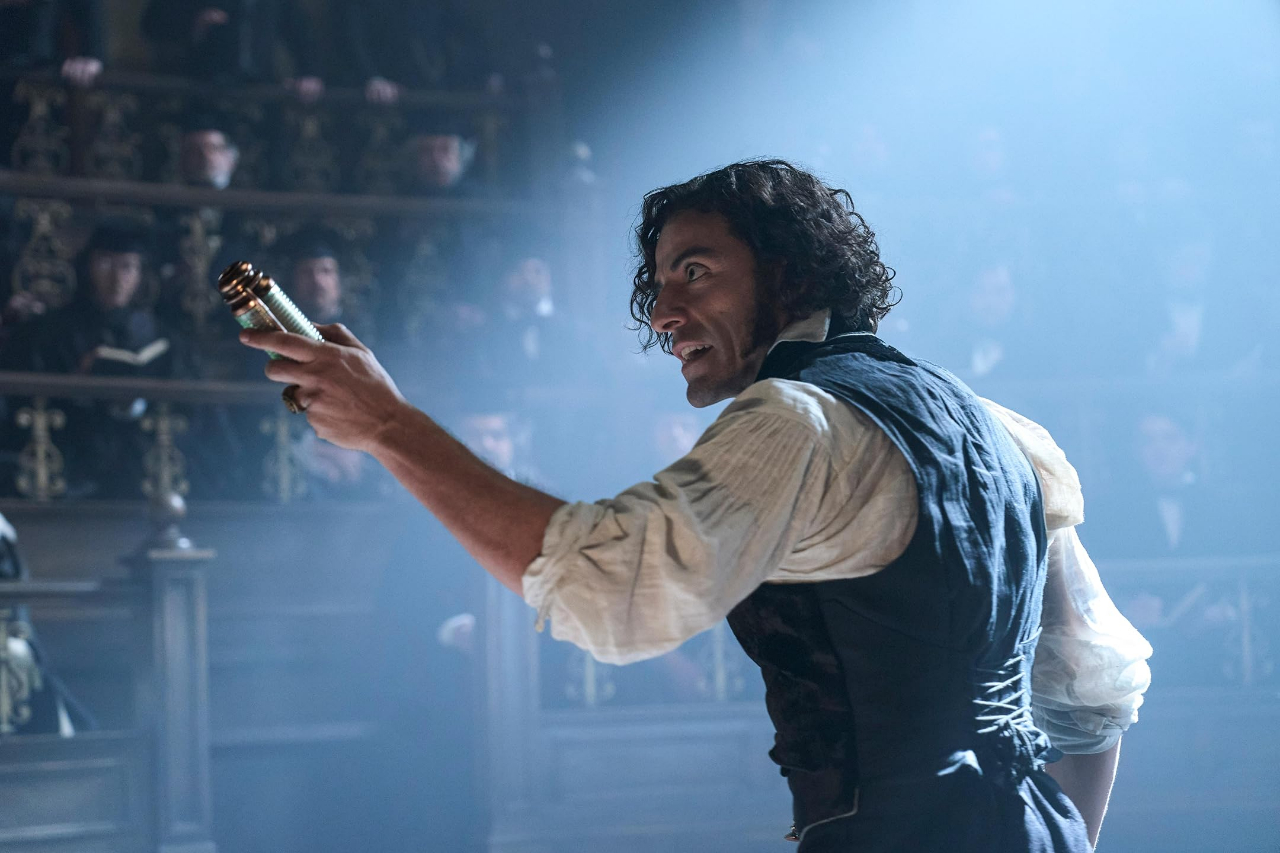
The Venice International Film Festival, the oldest in the world and a key launchpad for the awards season, returns from 27th August to 6th September 2025. Each year, some of the world’s most revered filmmakers and internationally famous actors descend upon the lagoon, gracing the red carpet of the Lido. At today’s press conference in Venice, Biennale President Pietrangelo Buttafuoco and Artistic Director Alberto Barbera unveiled the first half of the official programme – one of the festival’s biggest and most anticipated lineups in years – offering an early look at the films and series that will shape this year’s edition.
Competition
The Venezia 82 competition gathers 21 titles, a line-up that blends anticipated returns by master filmmakers with bold new works reflecting contemporary concerns. The festival will open with La Grazia, the new film by Paolo Sorrentino.
Among the highlights is The Wizard of the Kremlin, a political drama from Olivier Assayas, based on a novel co-written with Emmanuel Carrère. The film offers a fictionalised account of Vladimir Putin’s rise to power, as seen through the eyes of his spin doctor, played by Paul Dano, while Jude Law takes the role of Putin himself. Alicia Vikander and Jeffrey Wright also star.
Noah Baumbach returns to Venice for the third time with Jay Kelly, a comedy co-written with Greta Gerwig. Shot largely in Italy, it centres on an actor in the midst of an identity crisis, portrayed by George Clooney, alongside an ensemble cast including Adam Sandler, Laura Dern and Riley Keough.
Kaouther Ben Hania presents The Voice of Hind Rajab, a harrowing reconstruction of a real emergency call from Gaza. The film follows a six-year-old girl trapped in a car under attack, while her relatives, volunteers and an ambulance crew attempt to reach her. The story unfolds using the actual recordings of the call, lending a visceral immediacy to its depiction of trauma.
Kathryn Bigelow’s A House of Dynamite explores modern anxieties through the lens of nuclear threat – not the bomb itself but the crumbling of everyday life under the weight of fear. Idris Elba and Rebecca Ferguson lead a strong international cast.
Cai Shangjun’s Ri Gua Zhong Tian (The Sun Rises on Us All) is a social melodrama set in present-day China, anchored by two of the country’s most famous stars, Xin Zhilei and Zhang Songwen, offering an intimate portrait of personal lives shaped by societal pressures.
The anticipated return of Guillermo del Toro comes in the form of Frankenstein, a reimagining of Mary Shelley’s gothic tale. Oscar Isaac leads as the scientist who brings a creature to life, in what promises to be a dark, opulent meditation on creation and destruction, with Jacob Elordi, Mia Goth and Christoph Waltz also in the cast.
Leonardo Di Costanzo contributes Elisa, a film rooted in criminology, based on the case of a woman who killed her sister and attempted to murder her parents. The narrative follows the work of two criminologists who persuaded her to accept responsibility for the crimes after years of denial.
Valérie Donzelli’s À Pied d’Oeuvre, adapted from a successful French novel, traces the decline of a celebrated photographer who abandons everything to become a writer, only to find himself impoverished and reduced to humiliating odd jobs. It is a portrait of resilience in the pursuit of dreams.
Ildikó Enyedi’s Silent Friend is structured in three episodes, set in 1908, 1972 and 2020, shot on three different media – 35mm, 16mm and digital. The film unfolds largely within Germany’s botanical gardens, with a centuries-old ginkgo biloba tree emerging as a silent protagonist, mediating a reflection on the vegetal world’s influence on human lives.
Mona Fastvold’s The Testament of Ann Lee, shot in 70mm with a brutalist aesthetic, recounts the history of the Shakers, a religious sect that migrated from Europe to America in the late 18th century and whose community still survives today. Amanda Seyfried leads a cast depicting this utopian society governed by strict rules including universal chastity.
Jim Jarmusch makes his long-awaited Venice comeback with Father Mother Sister Brother. Divided into three episodes and featuring an eclectic cast led by Tom Waits and Adam Driver, the film promises an ironic and tender exploration of family relationships, impossible to summarise in a traditional plotline.
Yorgos Lanthimos continues his creative partnership with Emma Stone in Bugonia, a science-fiction comedy and remake of a 2003 Korean film. Stone stars opposite Jesse Plemons and Alicia Silverstone in a film full of surprises.
Pietro Marcello returns with Duse, a meditation on the final years of the legendary actress Eleonora Duse, weaving archival footage into an evocation of Duse’s reinvention as she encountered figures such as Mussolini and D’Annunzio. The film also evokes the journey of Italy’s Unknown Soldier’s coffin through the country.
Franco Maresco presents the documentary Un Film Fatto per Bene, an elusive, bitterly ironic work about the impossibility of completing a film on Carmelo Bene. It is less a portrait of the maverick artist and more a meditation on failure and estrangement from an artistic world in which the director no longer recognises himself.
László Nemes, who debuted with Son of Saul at Cannes and brought his second film to Venice, returns with his most personal work to date. Orphan revisits the memories and experiences of his father, set in the days following the Hungarian uprising against the Communist regime. Shot with Nemes’s signature precision and immersive framing, the film promises an intimate reflection on generational trauma and historical rupture.
François Ozon tackles L’Étranger, a bold adaptation of Camus’s existential classic, previously filmed by Visconti with Marcello Mastroianni. Set in 1930s Algeria, the story follows the apathetic Meursault, whose emotional detachment leads him to commit a seemingly senseless murder, followed by a trial that scrutinises both his act and his indifference. Benjamin Voisin takes the lead, supported by Rebecca Marder and Denis Lavant.
Park Chan-wook brings Eojjeol Suga Eopda (No Other Choice), adapted from Donald Westlake’s novel The Axe, previously filmed by Costa-Gavras in 2005. The film follows a manager who, after two years of unemployment, decides to eliminate all competitors standing in his way to regain a job worthy of his stature. Lee Byung-hun and Son Ye-jin headline this darkly satirical thriller, promising Park’s usual blend of precision and biting social commentary.
Gianfranco Rosi returns with Sotto le Nuvole, a black-and-white portrait of Naples crafted over three years. The documentary weaves an affectionate and ironic mosaic of past and present – archaeologists and magistrates, echoes of war and street performers – creating a layered depiction of the city’s contradictions and vitality.
Benny Safdie presents The Smashing Machine, casting Dwayne Johnson as Mark Kerr, the 1990s wrestling and MMA champion. The biopic delves into Kerr’s battles inside and outside the ring, offering a portrait of physical dominance and personal vulnerability, supported by Emily Blunt in a key role.
Finally, Nühai (Girl) marks the directorial debut of Shu Qi, one of the most celebrated actresses in Asian cinema. Written over more than a decade, the film tells the intersecting stories of women – mothers, wives, daughters – who resist the rigid structures and demands of Chinese society. Starring Roy Chiu and 9m88, Nühai promises to be a sensitive and committed exploration of female agency and endurance.
Out of Competition
The Out of Competition fiction strand will close the festival with Chien 51, an adrenaline-fuelled thriller from Cédric Jimenez. Set in a dystopian future Paris, it features an ensemble cast including Gilles Lellouche, Adèle Exarchopoulos, Louis Garrel, Romain Duris and Valeria Bruni Tedeschi.
Other notable entries include Bosluga Xütbo (Sermon to the Void) by Hilal Baydarov, a visually hypnotic film shot in the Azerbaijani desert. A philosophical meditation on life’s vanity and the need to disconnect from the obsessions of daily existence, the film rejects realism entirely: every shot is altered to remove any trace of the familiar, creating a hallucinatory experience.
Antonio Capuano presents L’Isola di Andrea, while Andrea Di Stefano departs from the action films that made his name with Il Maestro, an attempt to reinvent Italian comedy. The film centres on the relationship between an incompetent tennis coach and a pupil lacking talent, with newcomer Tiziano Menichelli singled out for a revelatory debut performance.
Luca Guadagnino’s After the Hunt, screening out of competition by the director’s own choice, examines sexual violence at a prestigious American university. Julia Roberts leads the cast as a professor forced to confront her own past after a colleague faces a serious accusation.
Anime master Mamoru Hosoda returns with Hateshinaki Scarlet, the most expensive Japanese animated feature ever produced. A Shakespearean tragedy set in the “land of the dead”, the story follows a princess seeking vengeance for her assassinated father, fusing myth and classical influences.
Dark humour and surrealism shape Den Sidste Viking (The Last Viking) by Anders Thomas Jensen. The film, featuring Mads Mikkelsen and Nikolaj Lie Kaas, follows a botched robbery in a grotesque, comic and tragic journey across a Nordic landscape.
Julian Schnabel’s much-anticipated In the Hand of Dante finally reaches Venice, a film whose production was marked by legal wrangling and artistic disputes. Based on a 2002 novel and shot partly in Italy, it features an extraordinary cast – Oscar Isaac, Gal Gadot, Gerard Butler, Al Pacino, John Malkovich, Martin Scorsese and Jason Momoa – and follows a noir-tinged search for the original manuscript of The Divine Comedy.
Paolo Strippoli’s La Valle dei Sorrisi hints at horror without revealing too much – set in a remote mountain village hiding a dark secret.
After a six-year absence, Gus Van Sant returns with Dead Man’s Wire, a thriller based on a true crime story from the 1970s. The plot follows a man who stages a kidnapping to expose fraud and demand compensation, weaving fact and fiction in a taut narrative led by Bill Skarsgård and Al Pacino.
The final out-of-competition film is Orfeo, the directorial debut of Virgilio Villoresi, an artist known for his work in commercials and music videos. A self-financed project inspired by Dino Buzzati’s Orfeo, it combines handcrafted animation with studio-shot live-action, delivering an original and suggestive vision that echoes the independent spirit of Francis Ford Coppola’s late works.
Orizzonti
The Orizzonti section, dedicated to new trends in world cinema, features 19 titles this year. Opening the section is Mother, the latest work from Teona Strugar Mitevska. Noomi Rapace stars as Mother Teresa, in an unconventional portrait shaped by 15 years of research. The film promises a nuanced exploration of an enigmatic figure, far removed from hagiography.
Among the highlights is Komediye Elahi (Divine Comedy) by Ali Asgari, notable as the first Ecuadorian film ever selected in competition at Venice. Hiedra, the second feature by Ana Cristina Barragán, sees Benedetta Porcaroli in the lead, suggesting an intimate and character-driven work.
The section also presents Estrany Riu (Strange River), the debut feature by Basque director Jaume Claret Muxart. Set during a holiday along the Danube, the film follows an adolescent’s journey of self-discovery, including a quiet exploration of sexuality.
Akio Fujimoto’s third feature, Harà Watan (Lost Land), turns its gaze on persecuted children forced to flee Myanmar. Beginning almost as a documentary, the narrative evolves into a fable-like depiction of isolation and exile.
A social critique intertwined with fantasy underpins Grand Ciel, the debut film from Akihiro Hata, while Rose of Nevada, directed by Mark Jenkin, moves towards near-science fiction. Set in a Cornish fishing village, the film features an impressive British cast including George MacKay and Callum Turner.
Kent Jones returns with Late Fame, his second fiction film, in which Willem Dafoe leads as a former poet whose work is rediscovered by a younger generation of New York artists. Romanian filmmaker Mihai Mincan sets Dinti de Lapte (Milk Teeth) in the final years of Ceaușescu’s regime, adding to the section’s exploration of history and politics.
Argentina’s El Pampero Cinema collective contributes Pin de Fartie, a playful work referencing Samuel Beckett’s Film de Partie. Tereza Nvotová’s Otec (Father) and David Pablos’s En el Camino continue the section’s focus on intimate narratives.
Debut filmmaker Anuparna Roy brings Songs of Forgotten Trees, set in Mumbai and focused on two women confronting the patriarchal structures around them. Un Anno di Scuola, the second feature from Laura Samani, relocates a novel set in postwar Trieste to 2007, marking a thoughtful period transposition.
Gastón Solnicki completes his Viennese trilogy with The Souffleur, a blend of documentary and fiction following a historic hotel’s battle for survival, again featuring Willem Dafoe. Barrio Triste comes from Stillz, known for his music videos with Bad Bunny, who also appears in the film.
The line-up also includes Nawapol Thamrongrattanarit’s Human Resource and Funeral Casino Blues by Roderick Warich, the latter set in Bangkok and weaving social critique into a melancholic love story.
Out of competition: Shorts, series and non-fiction
Among the shorts, How to Shoot a Ghost stands out. Directed by Charlie Kaufman, this 27-minute visual poem follows two recently deceased young people navigating the liminal beauty of Athens, with performances from Jessie Buckley and Josef Akiki.
Television continues to claim space at the festival, reflecting the increasingly porous boundary between cinema and serial storytelling. Marco Bellocchio’s Portobello premieres its first two episodes, while Enrico Maria Artale adapts Un Prophète into a long-form narrative. Hagai Levi’s Etty presents a six-part series, and Stefano Sollima turns to one of Italy’s most notorious unsolved crimes with Il Mostro, a four-part investigation into the case of the Monster of Florence, often described as Italy’s Zodiac.
This year’s documentary selection gathers 15 titles, several by high-profile directors exploring deeply personal or culturally significant subjects. Sofia Coppola’s Marc by Sofia revisits her friendship with designer Marc Jacobs, evoking their shared New York youth and early collaborations. Ross McElwee’s Remake reflects on the death of his son, weaving a personal narrative with an aborted plan to remake one of his earlier films.
Laura Poitras and Mark Obenhaus present Cover-Up, a portrait of investigative journalist Seymour Hersh, charting his landmark reporting from revelations about US chemical research in the 1950s to CIA abuses in Latin America. The film traces the dark undercurrents of postwar American politics and the personal toll of truth-telling.
Broken English, directed by Jane Pollard and Iain Forsyth, focuses on Marianne Faithfull in the months before her death. The film blends documentary and staged performance – with Tilda Swinton and George MacKay – creating an original meditation on the singer’s life and legacy.
The editorial unit

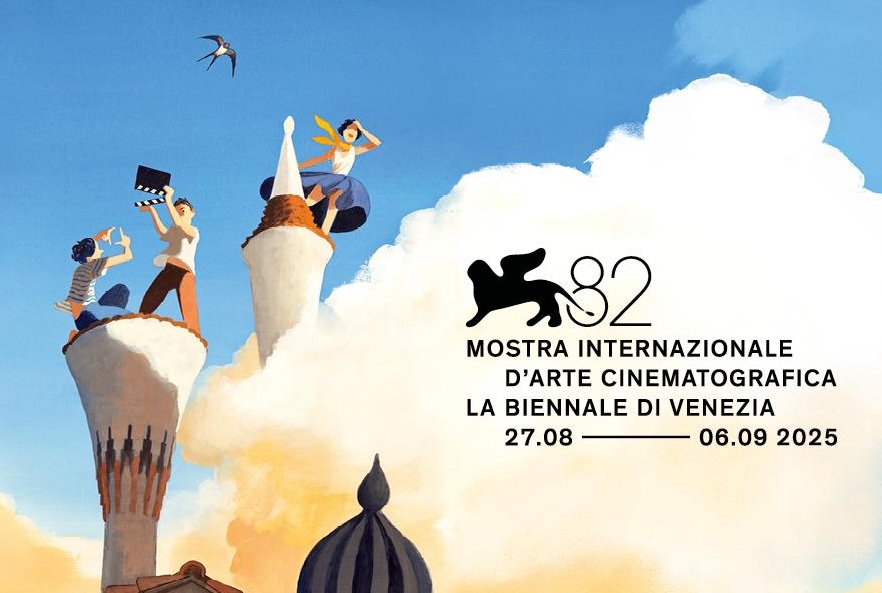
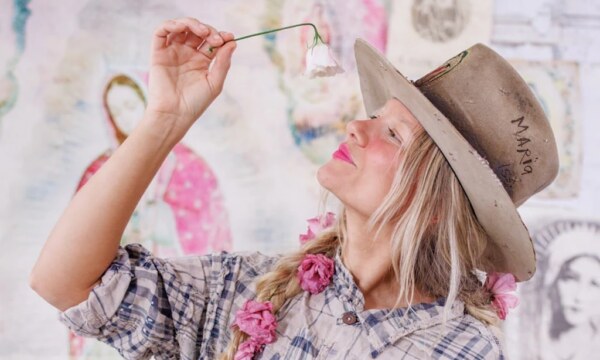
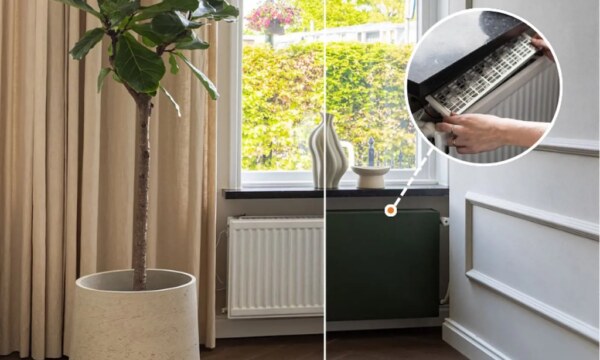

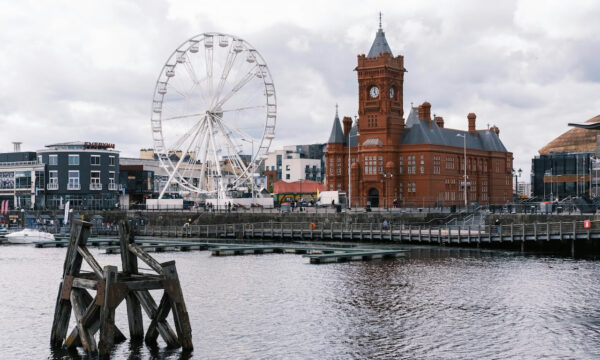
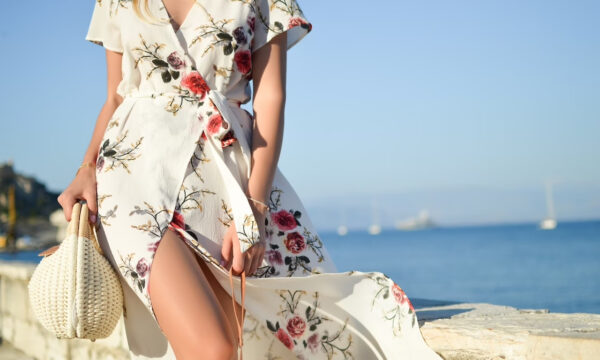



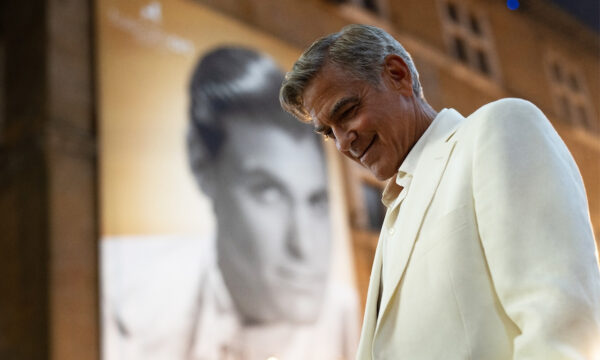
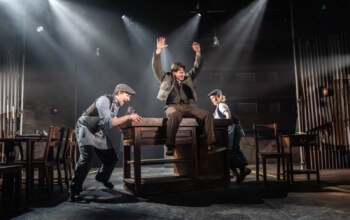

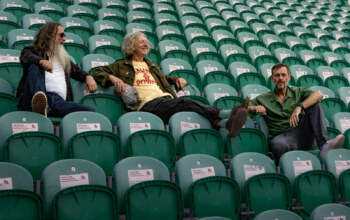
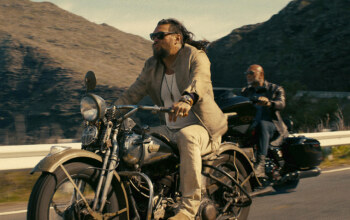







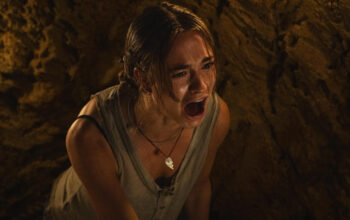
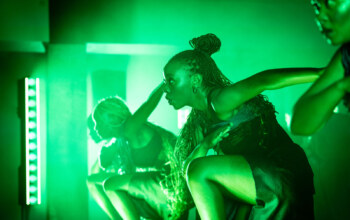
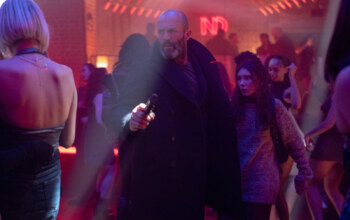
Facebook
Twitter
Instagram
YouTube
RSS